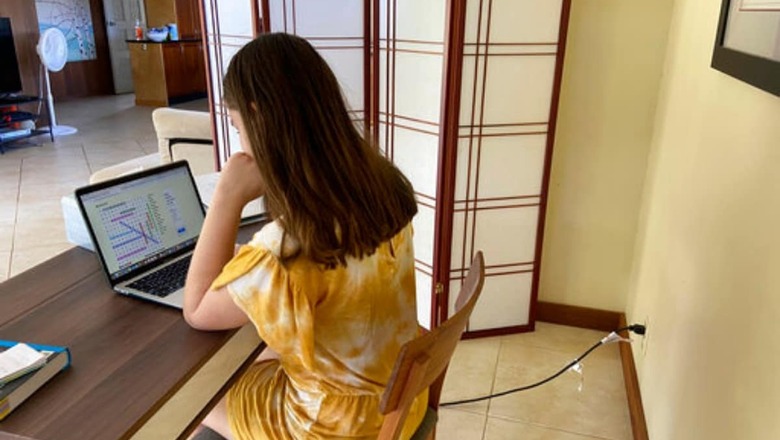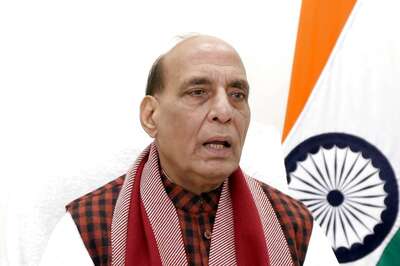
views
The coronavirus pandemic has laid bare the deep social and economic fault lines in society. It has exacerbated gender inequality, threatening women and girls’ educational gains, personal safety, and employment opportunities. As we look beyond a year that has changed the world irrevocably, we need to factor in these vulnerabilities as we attempt to shape a future that is more equal.
It is in this context that technology can play a pivotal role in addressing the many barriers faced by women. By building open, secure, and shared digital infrastructure, possibly in the form of Open Digital Ecosystems, technology can help bring transformative changes in sectors like health, urban governance, and agriculture to open a world of possibilities for women. Simply put, Open Digital Ecosystems (ODE) break down data silos, promote interoperability and allow for information to be accessed by different stakeholders for better service delivery and governance, while promoting innovation. One such example is the India Stack (a set of application programming interface or APIs), on which instruments like the UPI and eKYC have been built.
The ODE approach is governed by the principles of universal and last-mile access and empowerment of end-users. For women, this can be transformative. Below, we list five ways in which ODEs can help women:
- Urban governance: Travelling back home on a deserted street can be a difficult journey for most women, given the lack of safety in public spaces. Here, an urban governance national ODE (NODE) can provide a platform to integrate data on transportation, traffic flow and street lighting, among other things, to create solutions that address the core concern of safety. This can also help improve physical infrastructure tremendously, giving women greater choice when it comes to accessing opportunities.
- Jobs: According to the Periodic Labour Force Survey data, the labour force participation rate for women (2018-19) was 18.6 per cent—this was before the pandemic struck. One reason for this low figure is the lack of relevant opportunities for women. A NODE that increases women’s access to opportunities and the wider labour ecosystem can prove to be a gamechanger. This NODE can be a talent marketplace offering aggregated jobs data and skilling courses, job provider accreditation and ratings, verification of personal employment, and skilling history. Through such a system, not only will a female job seeker be able to access information about available jobs, but also the skilling courses that can enable her to become eligible for these jobs.
- MSMEs: On workforce participation, micro, small and medium enterprises (MSMEs) can also help generate employment for women. In a speech to the joint houses of Parliament, President Ram Nath Kovind said that 70 per cent of MUDRA (SME) loans are availed by women, which suggests more women are looking for entrepreneurial opportunities. A further boost to women-owned enterprises could come through an MSME NODE which can enable integration of financial data, asset holdings, and transaction history across multiple sources and provide seamless access to services. The aggregation of such data can help formulate a credit history, allowing women to further access formal credit lines. Through a platform like this, women-owned enterprises can not only access the formal financial system, but also reach a larger consumer base for their products and services.
- Law and Justice: According to Ministry of Law and Justice’s 2019-20 annual report, Indian courts are heavily overburdened. Moreover, reports of domestic violence also went up across the world during the pandemic, and India was no exception. Particularly in such cases, where women require immediate relief, a streamlined legal ecosystem could greatly reduce the burden on courts as well as expedite the justice delivery. Here, a law and justice NODE offering an automated platform that can enable faster case resolution, performance and resource management for judges, precedent tracking, and automated research processes could greatly increase efficiency.
- State Service Delivery: According to a report by the Initiative for What Works to Advance Women and Girls in the Economy (IWWAGE) and The Quantum Hub (TQH), women faced major challenges in accessing and claiming COVID-19 relief packages and entitlements due to lack of proper identification and ownership of bank accounts. While widening the social security net and fostering enabling policies can level the playing field for women, simply ensuring that existing schemes reach their intended beneficiaries is vital to drive transformative change. In this context, a NODE for state service delivery that comprises a state-based platform with accurate data on eligibility, household incomes and available schemes can help in both planning efforts as well as implementation of schemes. For women and other vulnerable sections in need of social security, this can increase their trust in systems, while simultaneously improving access to vital services.
The impact of a wider adoption of ODE principles is likely to be felt across sectors, and not just by women. Through the infrastructure that is created, along with clear accountability and privacy safeguards, ODEs can encourage inclusion and empowerment, giving people access to a range of services and opportunities that can transform their lives and livelihoods.
Read all the Latest News, Breaking News and Coronavirus News here




















Comments
0 comment